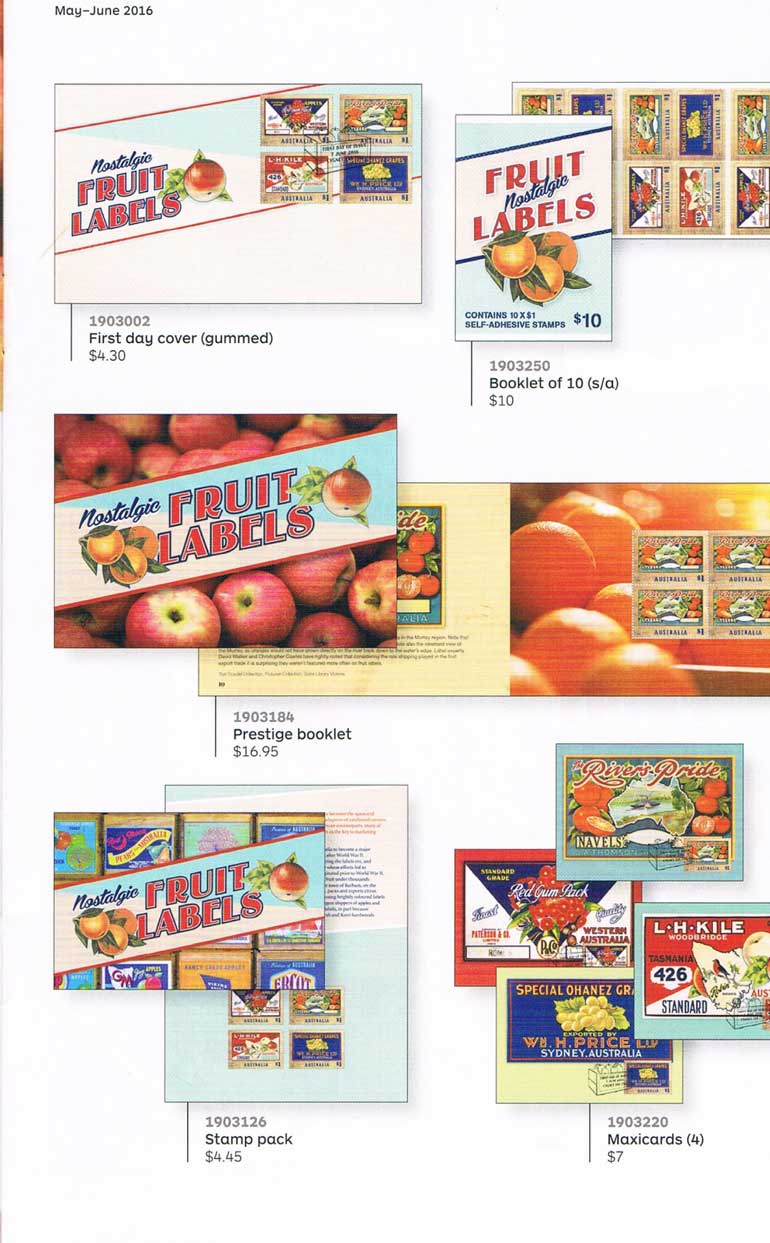Wednesday Mar 04, 2026
Wednesday Mar 04, 2026
Saturday, 13 August 2016 00:00 - - {{hitsCtrl.values.hits}}
‘Labels? – What a subject for stamps’, one may ask. But not stamp collectors or even marketers.
This column has often talked about the innovative ideas of Australia Post in selecting themes for stamps. The latest is on ‘Nostalgic Fruit Labels’.
Australia boasts of a very wide variety of fruits grown in different parts of the country. From almonds to watermelons, the list is quite long – virtually covering almost every letter in the alphabet.
Since the early 20th century Australia has developed a huge export market for its fruits throughout the world. There was rapid expansion of the export market over the first few decades.
In an era when marketing was not sophisticated and marketing tools were hardly known, the exporters packed the fruits in wooden cases and identified the type of fruit by stencilling the cases. Metal stencils were used brushed with black paint. The grower’s name, the type, size and grade of fruit were marked. As the fruit industry expanded coupled with competition among the exporters, the need for marketing was realised. While some continued with the use of stencilling, others started adding paper labels to promote their brand.
Paper labels pasted on to the end of the wooden cases formed part of the fruit industry landscape staring from the 1920s right up to the 1970s. Thereafter began the use of cardboard cartons, eliminating the need for separate labels. Printing could be done directly on the cartons.
When paper labels began to be used, there were labels both for the domestic as well as the export markets. The ones for exports were more colourful to make a bigger impact. It has been stated that the designs of the Australian fruit labels were heavily influenced by the orange crate labels of North America.
While labels were used for various types of fruit, apple labels from the “isle of apples” Tasmania were the most varied ones. The old labels have been preserved in the State Library of Tasmania while the Troedel Printing Archive in the State Library of Victoria is said to have one of the largest public collections of fruit labels.
Australia Post says that it was from “an amazing array of colourful designs” from the sample books of lithographic printing firm, Troedel and Cooper that three of the four designs were selected for the stamps. The fourth is the Western Australian label for Paterson & Co., one of the largest shippers of apples and pears in the west in the labels era.
By selecting the old labels as a subject for stamps, they will be exposed to a much wider audience than those preserved for posterity in the archives. They are also helpful in any study on the early days of marketing communications.
Apart from First Day Covers, stamp collectors were provided with several options of material on fruit labels. They included booklets of 10 stamps, a prestige booklet, a stamp pack, maxicards, sheetlet pack and a roll of 100 stamps.
